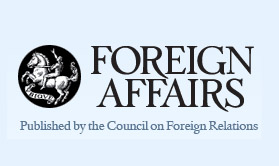
By Aqil Shah
There Will Be Blood
 Last week, unknown assailants shot and killed human rights activist Sabeen Mahmud in Karachi, Pakistan’s largest city and commercial hub, where she ran T2F (short for the Second Floor), a small café-cum-cultural center. Since its opening in 2007, T2F has provided budding poets, writers, and activists a safe space for critical expression in a country where the military and militants linked to it have created an environment of doubt, fear, and uncertainty. She was targeted immediately after hosting a discussion in the center called, “Unsilencing Balochistan Take 2” on human rights violations in the resource rich southwestern province, where the military and its intelligence services have waged a long “dirty war” against Baluch separatists.
Last week, unknown assailants shot and killed human rights activist Sabeen Mahmud in Karachi, Pakistan’s largest city and commercial hub, where she ran T2F (short for the Second Floor), a small café-cum-cultural center. Since its opening in 2007, T2F has provided budding poets, writers, and activists a safe space for critical expression in a country where the military and militants linked to it have created an environment of doubt, fear, and uncertainty. She was targeted immediately after hosting a discussion in the center called, “Unsilencing Balochistan Take 2” on human rights violations in the resource rich southwestern province, where the military and its intelligence services have waged a long “dirty war” against Baluch separatists.
Just a week earlier, Pakistan’s Inter-Services Intelligence (ISI) had preempted “Unsilencing Balochistan Take 1,” to be held at the elite Lahore University of Management Sciences (LUMS), by threatening the faculty there. Unfazed, Mahmud invited some of the same speakers who were scheduled to speak at LUMS, including Mama (uncle) Qadeer, a tireless 72-year-old Baluch rights activist, who had found his son’s dumped mutilated corpse in Turbat (a town in southern Baluchistan) in 2011, two years after he “disappeared.”
Anyone who publicly criticizes the military in Pakistan is treading on thin ice, but discussing Baluchistan is a particular taboo. With a few exceptions, journalists and other writers self-censor mostly out of concern for their own safety. Last April, the prominent journalist and host of another popular Geo TV show, Hamid Mir, was seriously injured when unknown gunmen opened fire on his car after he reported on the “disappeared” of Baluchistan. Mir claimed that he had angered senior ISI officials. The channel is still smarting from a strong military backlash after it broadcast allegations by Mir’s family that the head of the ISI had carried out the attack on him. It was no surprise then that Geo TV bleeped the intrepid Sethi out when he tried to discuss the alleged role of intelligence agencies in Sabeen’s murder on air.And last September, two men I took to be agents from the ISI, accosted me at Columbia University in New York, where I had just launched my book on the Pakistan military. They were angry that I had claimed that it was open season on torture and killing in Baluchistan. Before parting, one of them asked me if I had any “real evidence” on the military’s killing of the Baluch, quickly adding, “you better watch out for the crocodiles if you want to swim in the river.” The military considers middle class, English-speaking rights activists particularly dangerous because they can advance their causes by expressing their concerns to informed audiences both at home and abroad. And as the astute Pakistani columnist Cyril Almeida noted in Dawn, a prominent local newspaper, social media like Facebook and Twitter have significantly enhanced their ability to advocate their causes. Sabeen was one such activist who had apparently been pushing the envelope too far. T2F’s scheduled discussion for April 29 was to include an examination of the legality and appropriateness of military courts for trying terrorism cases, which were set up at the generals’ insistence after a gruesome December 2014 attack by Pakistani Taliban on an army run school in Peshawar. In 2012, the prominent human rights lawyer, Asma Jehangir, who has relentlessly documented the military’s human rights violations in that province for the Human Rights Commission of Pakistan and routinely censures the generals for their involvement in civilian politics, claimed senior ISI officials were plotting to kill her. She now travels with armed civilian police guards. We will probably never find out who really killed Sabeen. Some local police officers, journalists with known sympathies for the military, and other assorted right-wing nationalists are already busy pointing fingers at the usual suspects, including India’s Research and Analyses Wing (RAW). Shehzad’s murder and the attack on Mir were similarly shrouded in deliberate ambiguity and obfuscation, which help reinforce the military’s sense of impunity. In 2009, a journalist from Der Spiegel asked Ahmad Shuja Pasha, then Director General of ISI, why Pakistan wouldn’t arrest the Afghan Taliban leadership believed to be hiding in the country. His response was telling: “Shouldn’t they be allowed to think and say what they please? They believe that jihad is their obligation. Isn’t that freedom of opinion?” Clearly, the only people with the right to free speech in Pakistan belong to the military or its militant clients. As Mahmud’s murder makes crystal clear, everybody else must get in line, or there will be blood. https://www.foreignaffairs.com/articles/pakistan/2015-05-02/there-will-be-blood
No comments:
Post a Comment